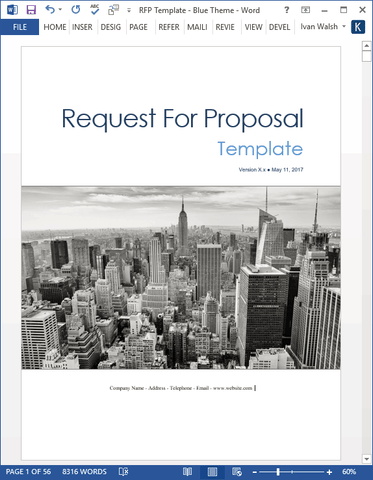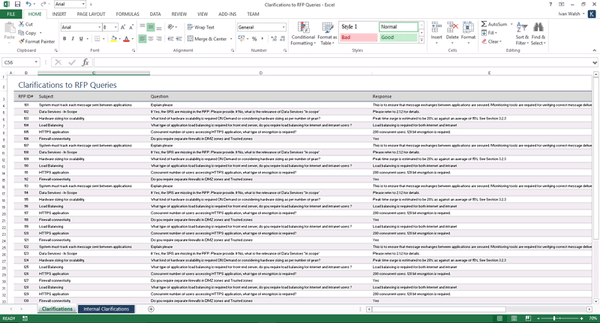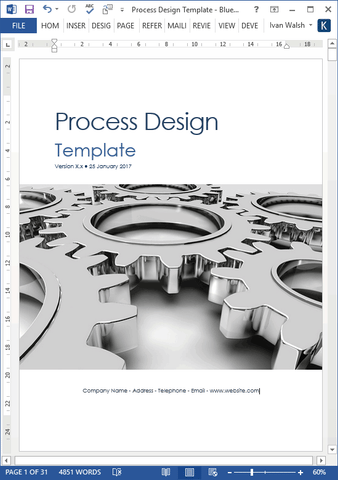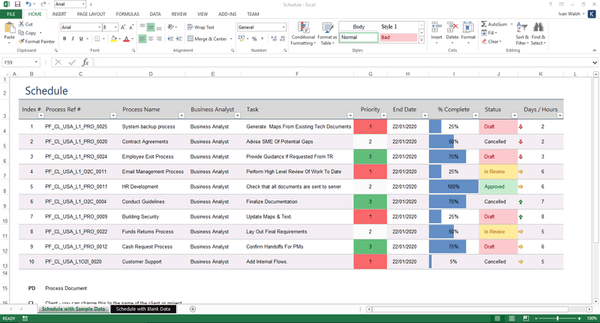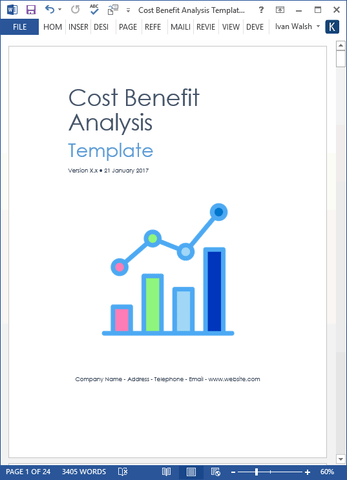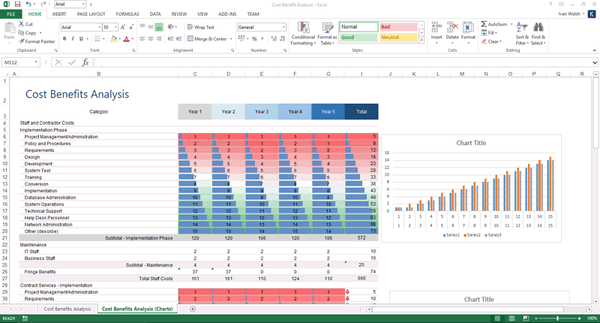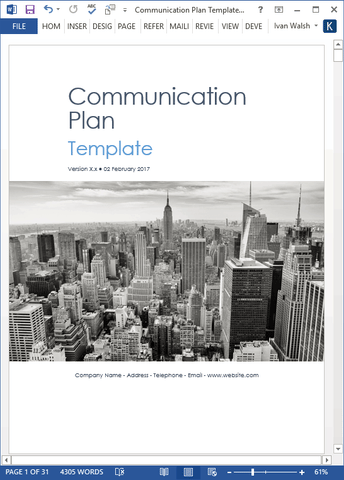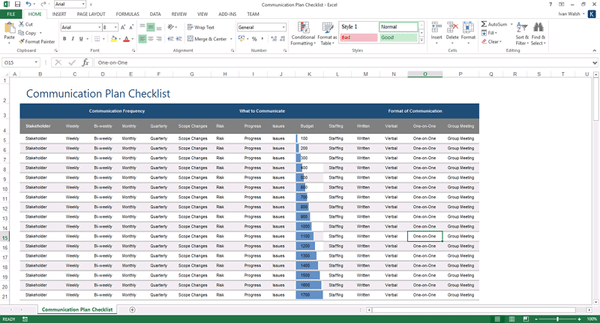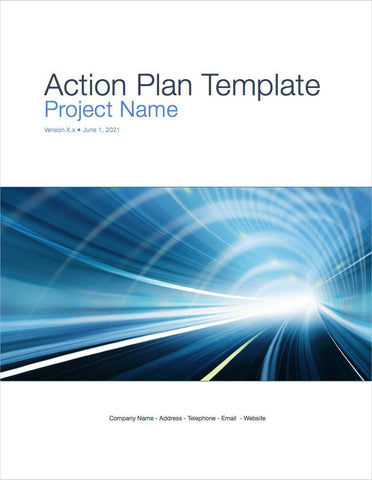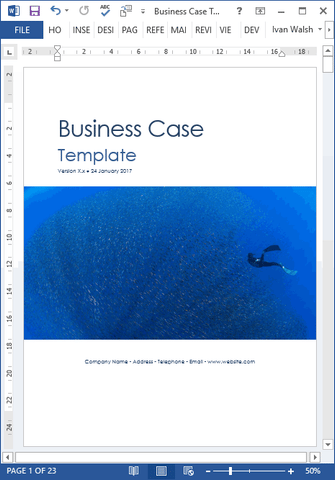25 x MS Excel spreadsheet, 25 x MS Word documents. Includes Bid-No Bid log, Clarifications, Competitors Matrix, Costs Breakdown, Deliverables Timetable, Partner / Subcontractor Matrix, Phased Costs, Post-Award Debrief, Proposal Checklist, Proposal Development Schedule, References, RFP Schedule, Status Report, and Success Ratio templates.
You get 25 Procurement Templates including the following:
Document Control
Control all proposals that you are responsible for. Sort by contributor, document number, proposal title, client name, date, review, status, and version.
RFP Schedule
Monitor the schedule of all RFPs that your company plans to bid for. Sort the spreadsheet by Issuers (e.g. Dept of Transport), official document number, proposal title, publication date, submission date, Bid Manager, review date, and its Status, such as Bid or No Bid.
Bid-No Bid Log
Record which RFPs (ITTs) you decide to bid or not bid for.
Success Ratio
Track the success ratio of bids you have submitted.
Schedule
Monitor the tasks allocated to team members for the duration of the proposal lifecycle.
Timetable
Track the project’s development phases (i.e. design, development, testing), timeframes, due dates, deliverables and key events, such as Go Live dates.
Review Meeting
Schedule meetings with the proposal team members. Record the Date, Time, Attendees, Agenda, Location, Bid No., Proposal Title, and Comments.
Checklist
Check that you have covered all the key areas, such as RFP Name, Bid Manager, Section #, Requirements, Description, Priority, Availability, Comment, Resource, and Due Date.
Clarifications
Record details of the clarifications that either you or other bidders have submitted, such as Clarification number, Clarification, Answer, Comments, Status.
Post-Award Debrief
Record details of the debrief, including date, time, attendees, location, bid no., proposal title, and comments.
Costs Breakdown
Capture the overall costs by Section, Description, and Price.
Software Pricing
Record details of the software costing (e.g. 3rd party application), such as its description, qty, Unit Price, Installation Cost, VAT, Comments, Total Cost, and details of Single User, Group License, Shareware.
Server Pricing
Record details of server pricings, including its description, Quantity, Unit Price, Installation Cost, VAT, Expenses and Total Cost.
Phased Costs
Record the costs of all development phases (e.g. Year 1, Year2, Year3) for Software Development, Services, Software, Hardware, Network, Telecommunications, Training, Contingency, and Total.
SLA Pricings
Capture the pricing of different Service Level Agreement, e.g. Service Level 1, Service Level 2, Service Level 3.
Risk Assessment
Assess the level of risk involved, e.g. Risk Level Range, Risk Item, The Risk Score, Budget Risk (What risk does the budget represent?), External Dependencies Risk (Dependencies on sub-contractors?) and more.
Status Report
Track the main issues for each project, such as the level of severity, key deliverables, their value, and the level of severity (5 = High, 1 = Low).
Client Meeting Schedule
Arrange meetings with clients. Track the RFP #, Proposal Title, Date, Location, Agenda, Comments, Status.
References
Record the details of your main references, such as their Name, Company, Title, Email, Tel, Confirmed, Comments.
Resume Matrix
Ensure that the correct resumes (CVs) are included in each proposal.
Partner / Subcontractor Matrix
Identify the most appropriate partner for each proposal. Sort by Partner, Key Contact, Role, Tel, Email, Skills.
Competitors Matrix
Track your main competitors. Record details of their name, Size, Recent Wins, Strength, Weakness, and Industry.
Inventory of Supplies
Maintain an inventory of office and production supplies. Record Order Dates, Item, Supplier, Tel, PO Number, In Stock.
Contents & Format
MS Word and MS Excel for each template
- Bid Team Roles and Responsibilities
- Bid-No Bid Log
- Capture Review Meeting
- Clarifications
- Client Meeting Schedule
- Competitors Matrix
- Costs Breakdown
- Deliverables Timetable
- Document Control
- Inventory of Supplies
- Partner / Subcontractor Matrix
- Phased Costs
- Post-Award Debrief
- Proposal Checklist
- Proposal Development Schedule
- References
- Resume Matrix
- RFP Schedule
- Risk Assessment
- Server Pricing
- Skills Matrix
- SLA Pricings
- Software Pricing
- Status Reporr
- Success Ratio
Product Specifications
File Format: The templates are in Microsoft Word (.docx) and Microsoft Excel (.xlsx) format.
Opening the Files: You don’t need any special software to unzip the files. To unzip the files, right click on it, then select Extract, and save it to your computer.
Getting Started: Depending on your MS Office settings, the files may say Read Only when you open them. If this occurs, click File, Save As and save the files. There are no security settings on any of the files.
Images: All of the images in the templates are copyright free.









